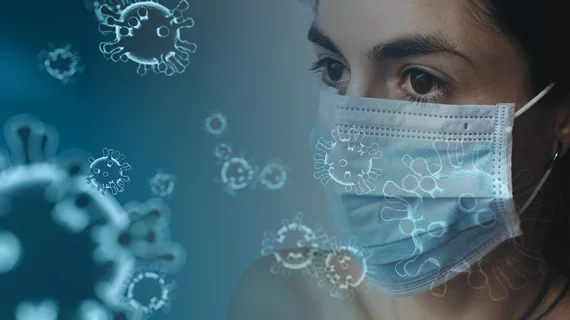Cardiovascular injuries linger in recovered COVID-19 patients, MRI study shows
Imaging studies have shown that COVID-19 can inflict damage on the cardiovascular system, and a new report suggests these injuries may linger even after recovery.
That’s the takeaway of a prospective study of 100 German patients who recently beat the virus, published July 27 in JAMA Cardiology. Magnetic resonance imaging revealed cardiac abnormalities in a majority of individuals, with heart muscle inflammation the most reported symptom.
This was true for the entire cohort—who had a median time to recovery of 71 days—regardless of preexisting conditions, disease severity and time from original diagnosis, according to first author Valentina O. Puntmann, MD, PhD, with University Hospital Frankfurt in Germany, and colleagues.
“The results of our study provide important insights into the prevalence of cardiovascular involvement in the early convalescent stage,” the group added. “Our findings demonstrate that participants with a relative paucity of preexisting cardiovascular condition and with mostly home-based recovery had frequent cardiac inflammatory involvement, which was similar to the hospitalized subgroup with regards to severity and extent.”
For their research, Puntmann et al. looked at recovered volunteers who were part of their hospital’s COVID-19 registry between April and June. Their rebound from the disease was confirmed via reverse transcription–polymerase chain reaction swab testing. Additionally, 67% took refuge at home, while 33% needed to be hospitalized.
Out of the 100 participants, MR imaging showed cardiac involvement in 78%, with most (60%) suffering from myocardial inflammation. This was true regardless of preexisting conditions, the severity and overall course of the COVID-19 presentation, the time from the original diagnosis, or the presence of cardiac symptoms.
Most previous studies have revealed COVID-19 to attack heart failure patients, predominately those with preexisting conditions. This study suggests that may not be the case, Puntmann et al. wrote.
The results cannot be applied to patients under 18, the group noted, and do not represent patients with acute infection or asymptomatic cases. But the authors said their outcome data remains “outstanding.”
“Our findings may provide an indication of potentially considerable burden of inflammatory disease in large and growing parts of the population and urgently require confirmation in a larger cohort,” they concluded. “Although the long-term health effects of these findings cannot yet be determined, several of the abnormalities described have been previously related to worse outcome in inflammatory cardiomyopathies.”

